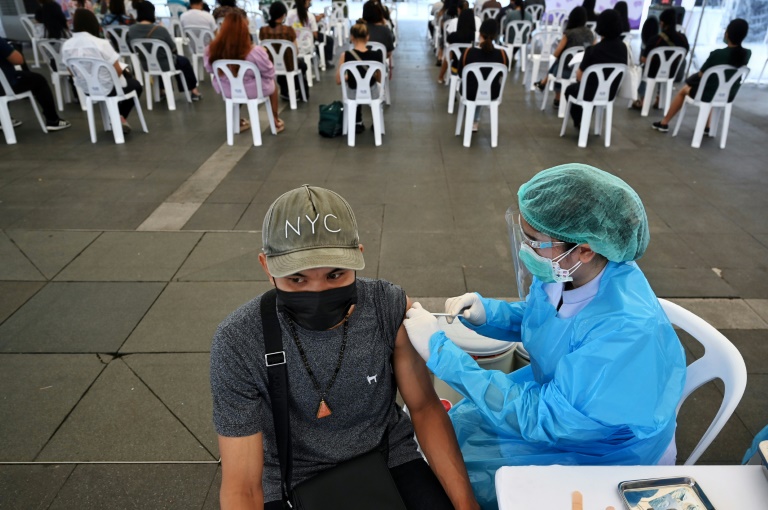The new Delta a.k.a. Indian variant of COVID has arrived at exactly the wrong time. In the UK, the first spike of increased infections has now emerged. The Delta version of COVID is believed to be highly infectious, and able to infect people who have been partially vaccinated.
As usual, the amount of actual hard information is limited. It was long predicted that the pandemic would be affected by new variants. The world has had a crash course in virology, but some lessons take longer to learn than others.
The main problem with this new variant is that it has the potential to derail the recovery very efficiently. The global vaccination program was a record-breaking effort. Multistage vaccination takes time.
Time is exactly what the world doesn’t have. This new variant has the ability to outpace the vaccination program. Lockdowns are inevitable. In effect, this could be the real next round, ready or not.
Vaccination issues, and too many of them
Meanwhile on the vaccination front, few people are bothering to acknowledge real problems and the issues regarding resistance to vaccination. The new vaccines are generating a lot of worry about unappealing risks like blood clots.
Anecdotally, too, many people online are reporting a broad spectrum of unpleasant side-effects from the vaccines lasting for days. As a disincentive to vaccination, this information is very hard to ignore.
Add to this the rather vague situation regarding what happens if the vaccination goes wrong, and you have yet another disincentive to vaccination. People aren’t avoiding vaccination to no reason; they are genuinely worried, and they have reason to be worried.
OK, new vaccines, particularly vaccines produced so incredibly quickly, probably will have problems. New vaccines, and new technologies, notably a “vaccine in a pill” are being predicted for the end of the year. It’s hardly surprising that these very mixed messages about problems with vaccination and better future options are not exactly generating a lot of enthusiasm for the current vaccination program.
The Delta factor
All this, however, is now subject to whatever the Delta variant might be able to do in the meantime. If this variant can have anything like the impact of the original first global spike, it’s big trouble.
Health systems are staggering along in their own recovery modes at the moment. The big decrease in infections has helped, but nobody is pretending to be back to normal at this point. Another large hit to these systems isn’t likely to be easy or cheap to manage. Logistics have been severely strained, and further strain is likely to simply overload the entire supply chain.
More lockdowns? Probably.
The bottom line here is that drastic quarantine, vaccinations, (preferably without the side-effects and risks) and restricted movement were better than anything else in the first outbreak. Some countries, like Australia and New Zealand, managed to contain the virus very effectively using these methods.
Nothing much else works, and the rapid spread of this virus is all too well documented. There really isn’t any other choice.
Strange policies, UVC and lack of ideas
From a purely policy perspective, the pandemic has been a black hole. There is absolutely nothing to be said for “herd immunity” and a viral pandemic. If the original strain of the virus doesn’t get you, the next one or the one after that quite probably will.
The “herd immunity” policy is to put it mildly rather strange. Influenza, the previous big virus pandemic, was contained rather than beaten. Eventually, medical technology caught up with the problem and was able to minimise if not eliminate influenza.
In this case, policy needs to work with medical realities and try to expand preventative options. Very little is being done about the baseline technologies like UVC, which can help to reduce circulating airborne viral populations by irradiation. What exactly is wrong with a safe, cheap, “area weapon” which is no more than a simple light, in public spaces?
UVC is getting a lot of attention in the news and in the private sector, but not in policy. Why not? Any possible option has to be better than no options at all. If there is an easy way of managing this virus, it needs to be explored, preferably ASAP.
Worst-case scenario
If the Delta variant gets out of control, all bets are off. Any return to normality may well be impossible. The cost and time scale of a major second pandemic could put unthinkable stresses on the world. The sheer scale of possible social and economic chaos cannot be overstated.
The world scraped through the first pandemic, just barely, and largely thanks to frontliners, not self-proclaimed political saviours and self-righteous pundits. Rhetoric made things a lot worse.
If the Delta variant becomes a major issue, the fan won’t just get hit this time; it may get obliterated.














